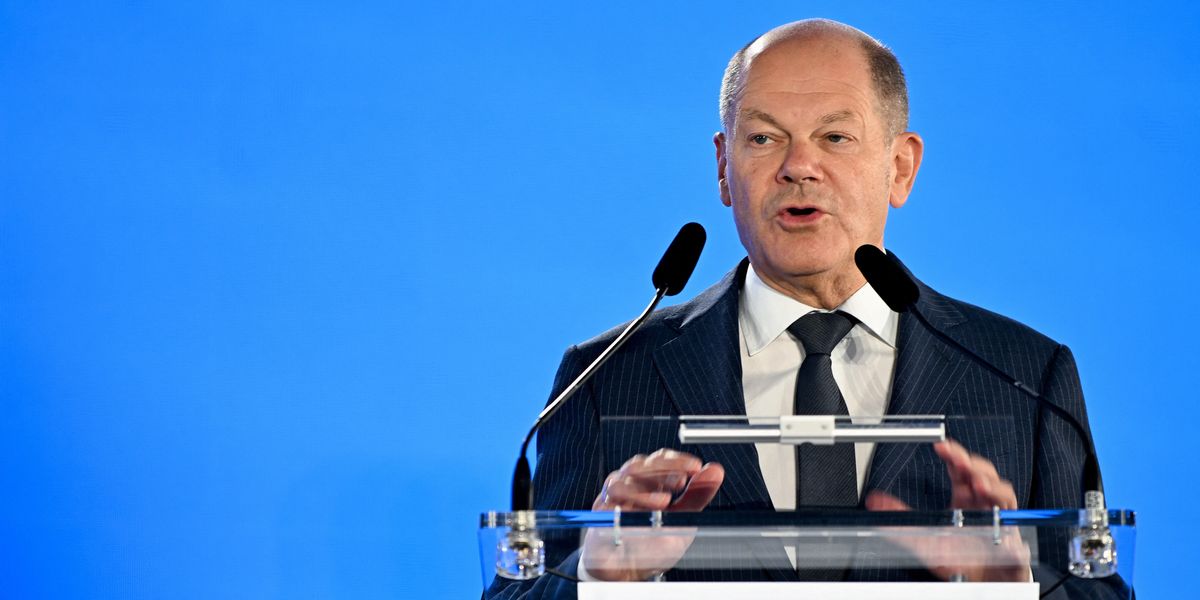Scholz’s SPD Triumphs in Brandenburg: A Narrow Victory Against the AfD
In a closely watched regional election, Olaf Scholz’s Social Democratic Party (SPD) has managed to secure a narrow victory over the hard-right Alternative for Germany (AfD) in Brandenburg, a significant political battleground in Germany. This election outcome is particularly crucial for Scholz, who is grappling with low approval ratings and the challenges of maintaining a fragile three-party coalition at the federal level.
A Hard-Fought Battle
The exit polls from Brandenburg revealed a tense electoral contest, with the SPD finishing first with 30.9 percent of the vote, closely followed by the AfD at 29.2 percent. The results indicate a razor-thin margin, highlighting the increasing polarization within German politics. This victory is a relief for Scholz, especially as he was advised against campaigning in the state due to his declining popularity. The SPD’s ability to hold onto Brandenburg, a region it has governed since German reunification in 1990, is a significant achievement that may bolster Scholz’s ambitions for re-election as Chancellor in the upcoming federal elections.
Implications for the AfD
While the SPD emerged victorious, the results also underscore the growing influence of the AfD, which has seen a notable increase in support. The party’s vote share rose by 6.5 percent compared to the last election in 2019, reflecting a broader trend of right-wing populism gaining traction in various parts of Germany. The AfD’s performance in Brandenburg, particularly after its historic win in Thuringia, signals a worrying shift in the political landscape, as it becomes the first hard-right party to win a state election in Germany since World War II.
The Role of Leadership
Dietmar Woidke, the popular leader of the SPD in Brandenburg, played a pivotal role in this electoral success. Acknowledging the stakes, Woidke had pledged to step down if the AfD won the seat, a commitment that likely galvanized support for the SPD. His leadership and dedication to the party’s cause were evident in his post-election remarks, where he emphasized the importance of the SPD in countering extremist movements. “We have managed to catch up like never before in the history of our country,” Woidke stated, reinforcing the party’s historical role in safeguarding democracy.
Scholz’s Political Future
The outcome in Brandenburg is not just a local victory; it has significant implications for Olaf Scholz’s political future. With his approval ratings at a record low, the SPD’s win provides a much-needed boost as he navigates the complexities of coalition politics. The federal government, composed of the SPD, the Greens, and the Free Democrats, has faced criticism over various issues, including economic challenges and energy policies. Holding onto Brandenburg may strengthen Scholz’s position within the coalition and enhance his credibility as a leader capable of steering Germany through turbulent times.
Conclusion
As the dust settles on the Brandenburg election, the results serve as a reminder of the shifting dynamics within German politics. While the SPD has managed to fend off the AfD in this crucial region, the rise of the far-right party poses ongoing challenges for Scholz and his coalition. The coming months will be critical as Scholz seeks to consolidate his power and prepare for the federal elections, all while addressing the concerns of an increasingly polarized electorate. The battle for the hearts and minds of German voters is far from over, and the implications of this election will resonate well beyond the borders of Brandenburg.
